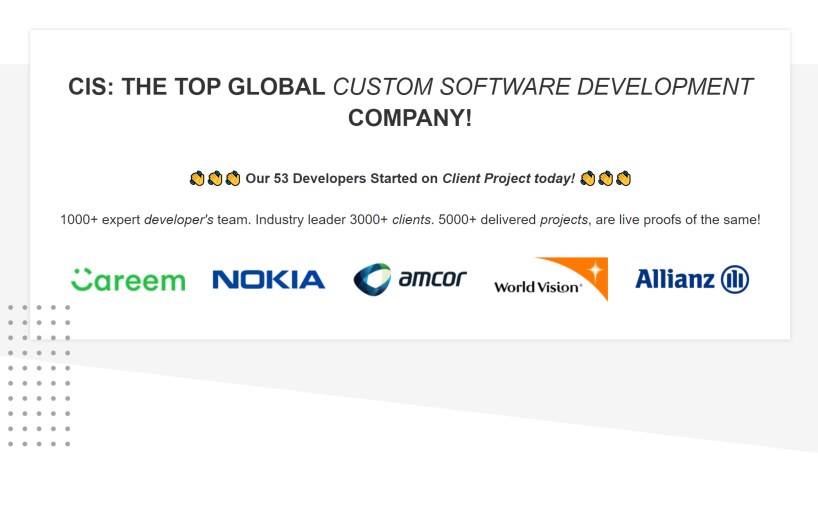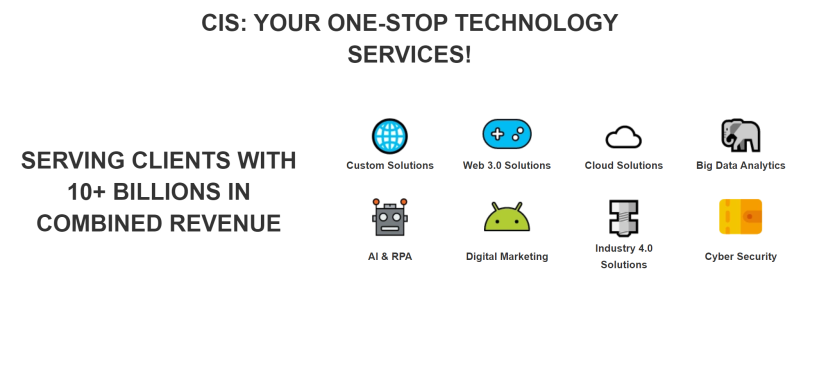Maximizing ROI: The Cost and Benefits of Adopting Drupal Enterprise Content Management System for Your Business
- Drupal Enterprise Content management system - Detailed Analysis by Enterprise Solutions Experts
Request A Free Consultation - Why Use Drupal Enterprise Content Management System



Why Mid-size Companies and Enterprises needs Drupal Enterprise Content Management System:
Drupal Enterprise Content Management System is a powerful and secure content management system specifically designed for mid-size companies and enterprises. It provides an easy to use interface that allows users to quickly create, manage, and publish digital content such as webpages, blog posts, images, videos, documents, etc. Drupal also offers advanced features like user permission control, workflow automation tools for managing content creation processes across multiple teams or departments. Additionally it can be easily integrated with other systems like CRM's and ERP's to provide a comprehensive business solution. With its robust security measures Drupal ensures data safety even in the most complex environments making it ideal for large organizations handling sensitive information.
Benefits of using Drupal Enterprise Content Management System in Mid-size companies and Enterprises:
1. Flexibility:
Drupal is highly customizable, allowing users to create and customize content types, taxonomies, menus and more without having to write any code. This makes it easy for companies of all sizes to tailor the platform to their specific needs.
2. Scalability:
Drupal can easily scale up or down depending on a company's changing needs as its business grows or shrinks over time. It also provides robust security features that allow businesses to protect their sensitive data from unauthorized access and ensure compliance with industry regulations such as HIPAA or GDPR.
3. Cost Savings:
As an open source software solution, Drupal is free for anyone to use, meaning mid-size companies don't have to pay expensive licensing fees like they would with other content management systems (CMS). Additionally, the modular architecture of Drupal allows companies to add new functionality quickly and cost-effectively using existing modules instead of custom coding from scratch.
4. Mobile Friendly:
With its responsive design capabilities out-of-the box, websites built on Drupal are optimized for mobile devices so customers can easily access information no matter where they are located or what device they're using - desktop computer, laptop computer tablet or smartphone .
5. Community Support:
The large community of developers who support Drupal means businesses have access to expert help when needed in order troubleshoot issues quickly and efficientlyDetailed Features of Drupal Enterprise Content Management System for Mid-size companies and Enterprises:
1. Content Creation & Management:
Drupal provides an intuitive user interface for creating and managing content, including pages, images, videos, documents, and more. It also supports multilingual content creation so you can reach a global audience with your website.
2. Scalability & Flexibility:
Drupal is highly scalable and flexible to meet the needs of mid-size companies and enterprises by allowing them to create custom websites that are tailored to their specific business requirements.
3. Security & Performance:
Drupal offers robust security features such as access control lists (ACLs), secure file uploads/downloads, encryption support for data in transit or at rest, two-factor authentication support for users logging into the system remotely via SSH/SFTP protocols etc., making it ideal for enterprise use cases where security is paramount. Additionally its performance has been optimized over time through caching mechanisms like reverse proxies and Varnish cache which helps reduce server load times significantly while still delivering high quality web experiences across all devices types.
4. User Experience (UX):
With its powerful theme engine and responsive design capabilities out of the box, Drupal allows organizations to easily deliver beautiful user experiences on any device type without writing any code or hiring expensive UX experts - saving both time & money in the process!
5. Accessibility Compliance:
Being WCAG 2 Level AA compliant out of the box makes it easier than ever before for businesses to ensure their websites are accessible according to international standards set forth by W3C's Web Content Accessibility Guidelines (WCAG). This ensures everyone regardless of disability can access your website with ease!Request A Quote - Why Use Drupal Enterprise Content Management System
Who are the Users of Drupal Enterprise Content Management System:
Drupal Enterprise Content Management System is used by many large organizations and enterprises, including the United Nations, White House, Harvard University, Pfizer, NBC Universal, Weather.com, Sony Music Entertainment Japan and many more.
How to ensure Data Security and Compliance with Drupal Enterprise Content Management System:
1. Implement a secure authentication system:
Ensure that only authenticated users can access the Drupal Enterprise Content Management System by implementing two-factor authentication or single sign-on (SSO). This will help protect against unauthorized access to data and ensure compliance with security standards such as HIPAA and GDPR.
2. Utilize encryption:
Encrypt sensitive data, both in transit and at rest, using strong encryption algorithms like AES-256. This will help protect confidential information from being leaked or accessed without authorization.
3. Monitor user activity:
Use an audit logging system to monitor user activity within the Drupal Enterprise Content Management System so you can detect any suspicious activities quickly and take appropriate action if needed.
4. Regularly backup your data:
Ensure that all of your content is regularly backed up in case of accidental deletion or other unforeseen events which could lead to lost data or disruption of operations.5 Implement regular security updates: Make sure all modules are kept up to date with the latest security patches issued by Drupal developers, as well as any third party plugins used on the site, to prevent vulnerabilities from being exploited by malicious actors
How Drupal Enterprise Content Management System can increase organization Productivity, Agility, and Profitability:
Drupal Enterprise Content Management System (ECMS) can increase organization productivity, agility and profitability by providing a centralized platform for content creation, management and distribution. It allows organizations to store all their digital content in one place, enabling them to quickly access it from any device or location. Drupal ECMS also provides users with powerful tools for creating engaging web experiences that are optimized for search engine rankings. By leveraging these features, organizations can create more efficient workflows that improve collaboration across departments and teams. Additionally, Drupal ECMS offers analytics capabilities that allow companies to track user engagement levels as well as measure the success of their campaigns and initiatives. This helps businesses identify areas where they need improvement and develop strategies accordingly to maximize profits.
Request A Quote - Why Use Drupal Enterprise Content Management System
How to Measure KPIs and increase Benefits of implementing Drupal Enterprise Content Management System in Mid-size companies and Enterprises:
1. Set measurable goals:
Before implementing any new system, it's important to set measurable goals that will help track the success of the implementation and measure KPIs. These should include both short-term and long-term objectives such as cost savings, increased efficiency, improved customer service, better collaboration between departments or teams, etc.
2. Track user adoption rates:
Tracking user adoption rates is a great way to measure how successful your Drupal Enterprise Content Management System implementation has been. You can use analytics tools to monitor how many users are actively using the platform and which features they are engaging with most often. This data can be used to identify areas for improvement or further training needs within your organization.
3. Monitor performance metrics:
Performance metrics like page loading times and response times should be monitored regularly in order to ensure that your Drupal CMS is running smoothly and efficiently at all times. If there are any issues detected then these need to be addressed promptly in order to maintain good performance levels over time.
4 . Measure customer satisfaction:
Customer satisfaction surveys can provide valuable feedback on how well you're meeting their needs with your CMS implementation - this information can then be used as an indicator of success when measuring KPIs related to customer experience management (CEM). Surveys should ask customers about their overall experience with the system as well as specific questions about its usability, reliability, speed etc..
5 . Analyze ROI :
Finally , analyzing return on investment (ROI) is essential for determining whether or not investing in a Drupal Enterprise Content Management System was worth it for mid-size companies and enterprises . Look at factors such as cost savings from streamlining processes , increased revenue from improved customer service , reduced overhead costs due to more efficient operations etc . All these factors together will give you an indication of the benefits gained by implementing a content management system like Drupal .How Drupal Enterprise Content Management System can increase Employee Morale in your organization:
Drupal Enterprise Content Management System can increase organization employee morale by providing employees with an easy-to-use platform for creating and managing content. This system allows employees to quickly create, edit, and share content without having to worry about technical issues or security concerns. Additionally, the system provides a centralized repository of all organizational documents which makes it easier for employees to locate relevant information when needed. Finally, Drupal's user permission options allow organizations to customize access levels for individual users so that only those who need certain information have access to it. By making the process of sharing and collaborating more efficient and secure, Drupal helps boost employee morale by allowing them to focus on their work rather than worrying about administrative tasks related to content management.
How Drupal Enterprise Content Management System is Better than its Competitors:
Drupal is a powerful and flexible content management system that offers many advantages over its competitors. It provides an intuitive user interface, robust security features, and excellent scalability for large-scale websites. Drupal also has an active community of developers who are constantly improving the platform with new features and updates. Additionally, Drupal has a wide range of modules available to extend its functionality even further. This makes it easier to customize your website to meet specific needs or requirements without having to write custom code from scratch. Finally, Drupal's open source framework allows you to easily integrate third-party tools such as analytics software or payment gateways into your site quickly and cost effectively.
Request A Quote - Why Use Drupal Enterprise Content Management System
Cost to Develop & Implemention of Drupal Enterprise Content Management System:
The cost of developing and deploying a Drupal Enterprise Content Management System will depend on the size, complexity, and features of the system. Generally speaking, development costs can range from around $20,000 to over $100,000 for larger projects. Deployment costs will vary depending on hosting requirements but could be anywhere from around $500 to several thousand dollars per month.
Why outsourcing implementation services for Drupal Enterprise Content Management System is better for Mid-size companies and Enterprises:
Outsourcing implementation services for Drupal Enterprise Content Management System is better for mid-size companies and enterprises because it can help them save time, money, and resources. Outsourcing a team of experienced professionals to handle the installation and configuration of the system will ensure that the process runs smoothly and efficiently. Additionally, outsourcing allows businesses to access specialized expertise they may not have in-house while also leveraging economies of scale. This can lead to cost savings as well as an improved end product. Furthermore, by outsourcing implementation services, businesses can focus their internal resources on other areas such as marketing or customer service instead of dedicating staff exclusively to setting up the CMS system.
Request A Quote - Why Use Drupal Enterprise Content Management System


